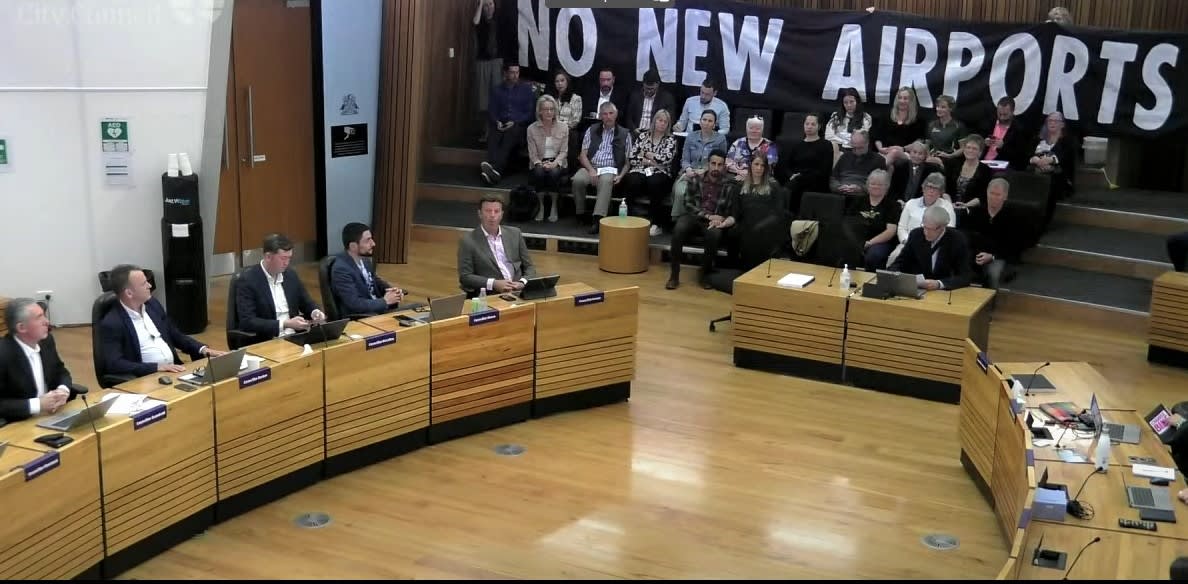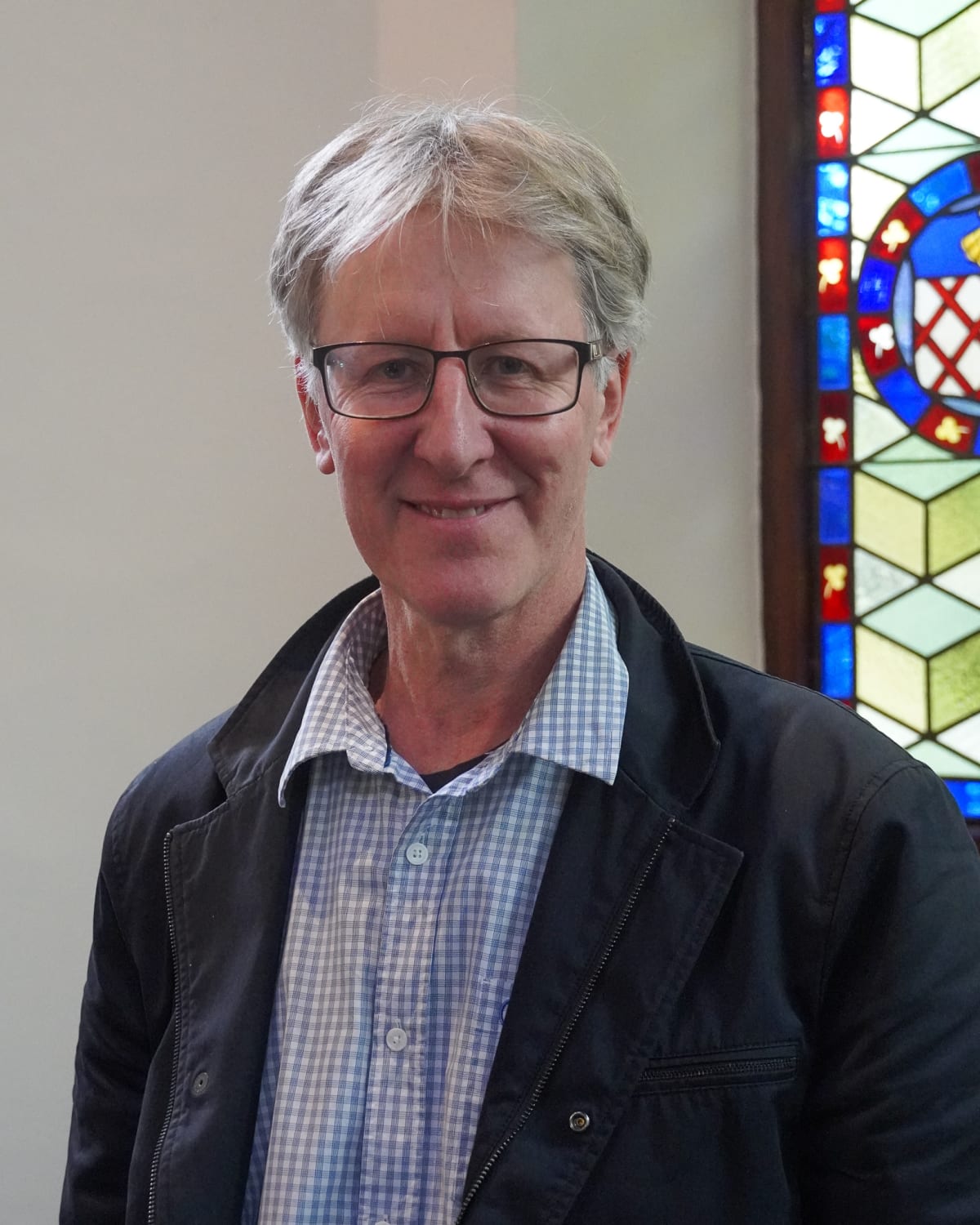
The proposed Christchurch City Council-backed international facility comes in for sustained opposition
With aviation’s cool-factor in decline in the midst of the climate emergency, a proposal for a new airport in Central Otago is copping relentless opposition.
Building new airports may have been generally celebrated as progress a few decades ago but the need to cut greenhouse-gas emissions is tempering that enthusiasm.
Environmental groups are increasingly pressuring the airline industry and Christchurch International Airport’s bid to build a new international facility in the heart of Central Otago is finding itself at the eye of the storm.
A meeting last week of Christchurch City Council - and other recent meetings - began with groups speaking against the proposed jet-capable airport in Tarras.
They say it is an example of what not to do in a climate crisis.
But the airport company, which is three-quarters council-owned and a quarter by the government, says it is dedicated to decarbonisation and that “major progress” is being made.
The Tarras plan has been in the public arena since 2020 when the company confirmed it had bought a 750ha chunk of Central farmland.
Representations against the proposal have been made to the city council by a group of prominent academics, a ratepayer group, Extinction Rebellion, Sustainable Tarras and last week 350 Otautahi-Christchurch.

Opponents have also recently presented at Otago Regional Council meetings and policy hearings, the Central Otago District Council and outside Parliament in Wellington.
Some of the groups support each other and a huge “No New Airports” banner they share is becoming a familiar sight.
Sustainable Tarras deputy chairperson Marilyn Duxson says members have paid for the production of videos outlining their concerns and distributed these to councillors, Christchurch resident groups, the airport company and “everyone else you could think of and his dog”.
They are raising funds for continuing the work, including getting legal advice.
Aviation in general is the wider target, with the industry accounting for 3.5 percent of global carbon emissions.
Signs of change internationally include Amsterdam’s Schiphol Airport, one of the world’s busiest, last week saying it will ban private jets, reduce hours and scrap plans for a new runway.
Frequent flyer programmes are drawing flak and even state weather forecaster MetService has attracted criticism for carrying aviation-related advertising on its website.
MetService acting marketing and communications manager Andrea Tandy says it tries to balance the site’s advertising with “the experience of our users”.
“Our aim is to ensure advertising does not get in the way of the weather message and feedback from people who feel we haven’t achieved that is shared within the organisation.”
How green is your hydrogen?
Graham Townsend, who spoke for the group 350 Otautahi-Christchurch at Wednesday’s council meeting, cites dozens of sources that say sustainable aviation fuels, including green hydrogen, are a long way off.
“Currently 99 percent of the world’s hydrogen is manufactured from fossil fuels.
“There will never be enough electricity available to manufacture green hydrogen as a fuel in addition to its other uses as a chemical feedstock,” he says.
“The role and responsibility of both central and local government is now to maximise the well-being of citizens within the harsh limits imposed by the laws of physics.
“We are answerable to our mokopuna,” Townsend told councillors.
Christchurch Mayor Phil Mauger, describing the Tarras airport topic as being “dear to his heart”, commended the environmental group’s presentation saying he had “listened intently”.
The airport company, which is developing a 400ha renewable-energy precinct in Christchurch, says it sees green hydrogen as one of the most promising zero-emission fuels.
With five other companies, including Air New Zealand and plane-maker Airbus, is has formed a “hydrogen consortium”.
In a press release it says the aim is to “support the country to pioneer the commercial deployment of green hydrogen-powered aircraft”.
Christchurch Airport chief executive Justin Watson says climate change has “further strengthened the international aviation sector’s resolve to decarbonise”.
“Major progress is being made,” Watson said at the consortium launch.
“There have been successful test flights of zero-emission aircraft. There are new sustainable aviation fuels that can cut emissions by up to 80 percent and a huge amount of research is going into how to commercialise these solutions.”
James Higham, a University of Otago professor of tourism and convenor of a group of academics called Informed Leaders, told Newsroom they want to ensure “the significant body of established science and emerging research” is heeded in Tarras airport decision-making.
“This includes topics such as the likely trajectory of aviation technologies, and the research around carbon emissions, climate change and environmental effects.”

He says the group is developing an online research index.
“This will be an easy-to-access-resource where decision-makers can see summaries of the available research and access the detail themselves if they wish.
“We are also planning to put together independent, science-based briefings for these people including from leading global experts.”
Meanwhile on the ground in Tarras an assessment of two possible alignments for the proposed 2.2km runway is nearly finished.
Spokesperson Yvonne Densem says the airport company is on track to begin the consenting process next year.
“We've been looking at a number of different aspects including flora and fauna, soil, and water on and around the site.
“We're also progressing the aeronautical analysis and gathering data to inform environmental assessments that will ultimately be required.”
Densem says the company accepts there are differing ideas regarding aviation and climate change.
“There will always be a range of views on both, or particular project aspects such as the speed at which decarbonisation of aviation will occur.”
Made with the support of the Public Interest Journalism Fund








